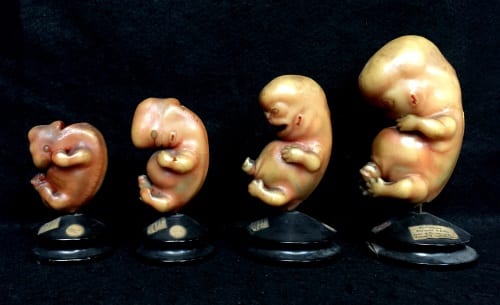Ordinary Animals in the Classroom
By Tannis Davidson, on 6 December 2017
The Grant Museum’s current exhibition – The Museum of Ordinary Animals: The Boring Beasts that Changed the World - explores the mundane creatures in our everyday lives. Here on the blog, we will be delving into some of the stories featured in the exhibition with the UCL researchers who helped put it together.
Guest post by Dr Brendan Clarke (UCL Science and Technology Studies)
Some biological principles are hard to understand from words and images alone, because life exists in three dimensions. This is where museum specimens come in.
However, some features are too small to observe in real life. Alongside microscope slides, wax models of enlarged embryos were widely used to teach biology between 1850 and about 1950. Most of the wax models in the Grant Museum collection represent exotic material – hard to obtain or to handle – like this series of human embryos produced by the Ziegler studio in Germany c1880:
 Close
Close


